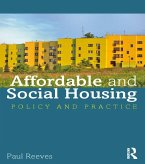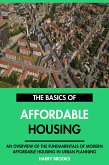Subtitle: Breaking the Circle of Blame in Housing Policy Author: Roger Lewis
Core Thesis
The book argues that the affordable housing crisis stems from systemic design flaws, not market failure. Through 10 evidence-based pathways, it demonstrates how communities can reclaim housing from financialization and transform it into equitable infrastructure.
Key Themes & Pathways
- Regulatory Reform Revolution
- Problem: Zoning laws, NIMBYism ("Not In My Backyard"), and bureaucratic barriers block affordable development (HUD, 1991).
- Solution: State-led overrides of exclusionary local policies (e.g., California's RHNA quotas).
- Decommodification Models
- Community Land Trusts (CLTs): Remove land from speculation.
- Public Credit Systems: Replicate North Dakota's state bank to fund housing without predatory debt.
- Climate-Policy Integration
- Problem: "Green" regulations inflate costs without addressing housing shortages (Chapman University, 2024).
- Solution: Pair density bonuses with sustainability mandates (e.g., transit-oriented development).
- University-Community Partnerships
- Case Study: Universities as anchors for equitable development, countering displacement (American Bar Association, 2024).
- Financial Reengineering
- Replace interest-based financing with community-controlled credit, slashing the 77% interest burden (Creutz, 2010).
- Pattern Language Design
- Apply Christopher Alexander's architectural principles for human-centered, livable communities.
- Blockchain Governance
- Transparent, resident-led decision-making for democratic development.
- Carbon-Neutral Affordable Housing
- Integrate renewable energy (solar, biogas) to cut costs via carbon credits.
- Inclusionary Zoning 2.0
- Mandate affordable units in market-rate projects while avoiding supply reduction (CQ Researcher, 2018).
- Disaster-Resilient Communities
- Post-crisis rebuilding models that prioritize equity (e.g., rejecting New Orleans-style "disaster capitalism").
Dieser Download kann aus rechtlichen Gründen nur mit Rechnungsadresse in A, B, CY, CZ, D, DK, EW, E, FIN, F, GR, H, IRL, I, LT, L, LR, M, NL, PL, P, R, S, SLO, SK ausgeliefert werden.









